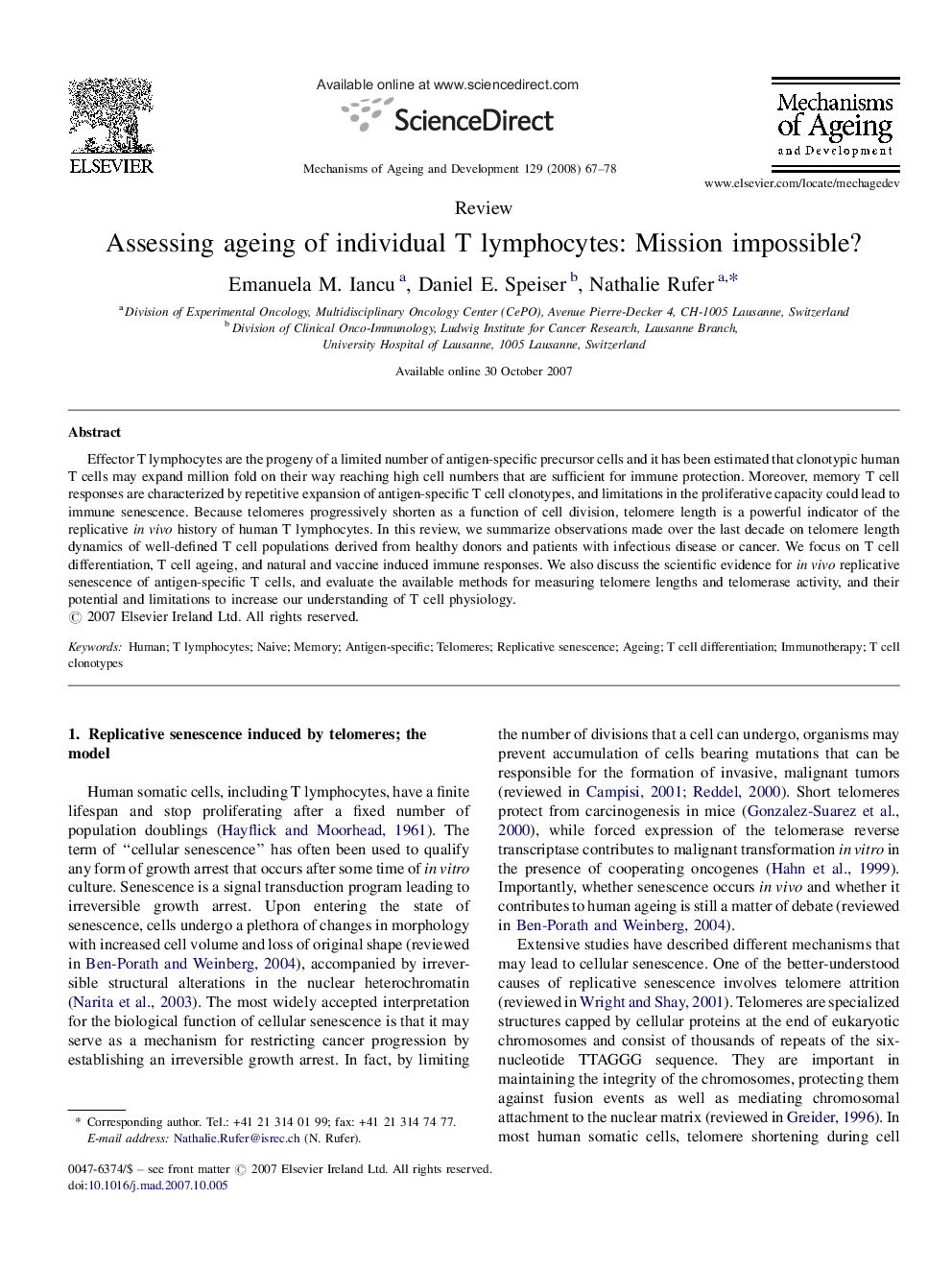| Article ID | Journal | Published Year | Pages | File Type |
|---|---|---|---|---|
| 1919610 | Mechanisms of Ageing and Development | 2008 | 12 Pages |
Effector T lymphocytes are the progeny of a limited number of antigen-specific precursor cells and it has been estimated that clonotypic human T cells may expand million fold on their way reaching high cell numbers that are sufficient for immune protection. Moreover, memory T cell responses are characterized by repetitive expansion of antigen-specific T cell clonotypes, and limitations in the proliferative capacity could lead to immune senescence. Because telomeres progressively shorten as a function of cell division, telomere length is a powerful indicator of the replicative in vivo history of human T lymphocytes. In this review, we summarize observations made over the last decade on telomere length dynamics of well-defined T cell populations derived from healthy donors and patients with infectious disease or cancer. We focus on T cell differentiation, T cell ageing, and natural and vaccine induced immune responses. We also discuss the scientific evidence for in vivo replicative senescence of antigen-specific T cells, and evaluate the available methods for measuring telomere lengths and telomerase activity, and their potential and limitations to increase our understanding of T cell physiology.
